Jewels Adair is a graduate student in the Applied Social Psychology Department at the University of Windsor. 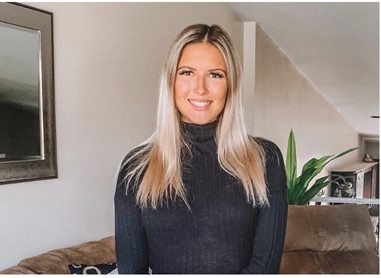
The primary focus of her research agenda has been on understanding and treating sexual violence and intimate partner violence. Her research efforts focus on several areas including preventing technology facilitated sexual assault and enhancing risk reduction programs to prevent sexual violence.
Email: adair3@uwindsor.ca
Salsabel Almanssori is a graduate student in the Faculty of Education.
Email: almans@uwindsor.ca
Storm Balint is currently enrolled in the first year of her Ph.D. in the University of Windsor’s Applied Social Psychology Program.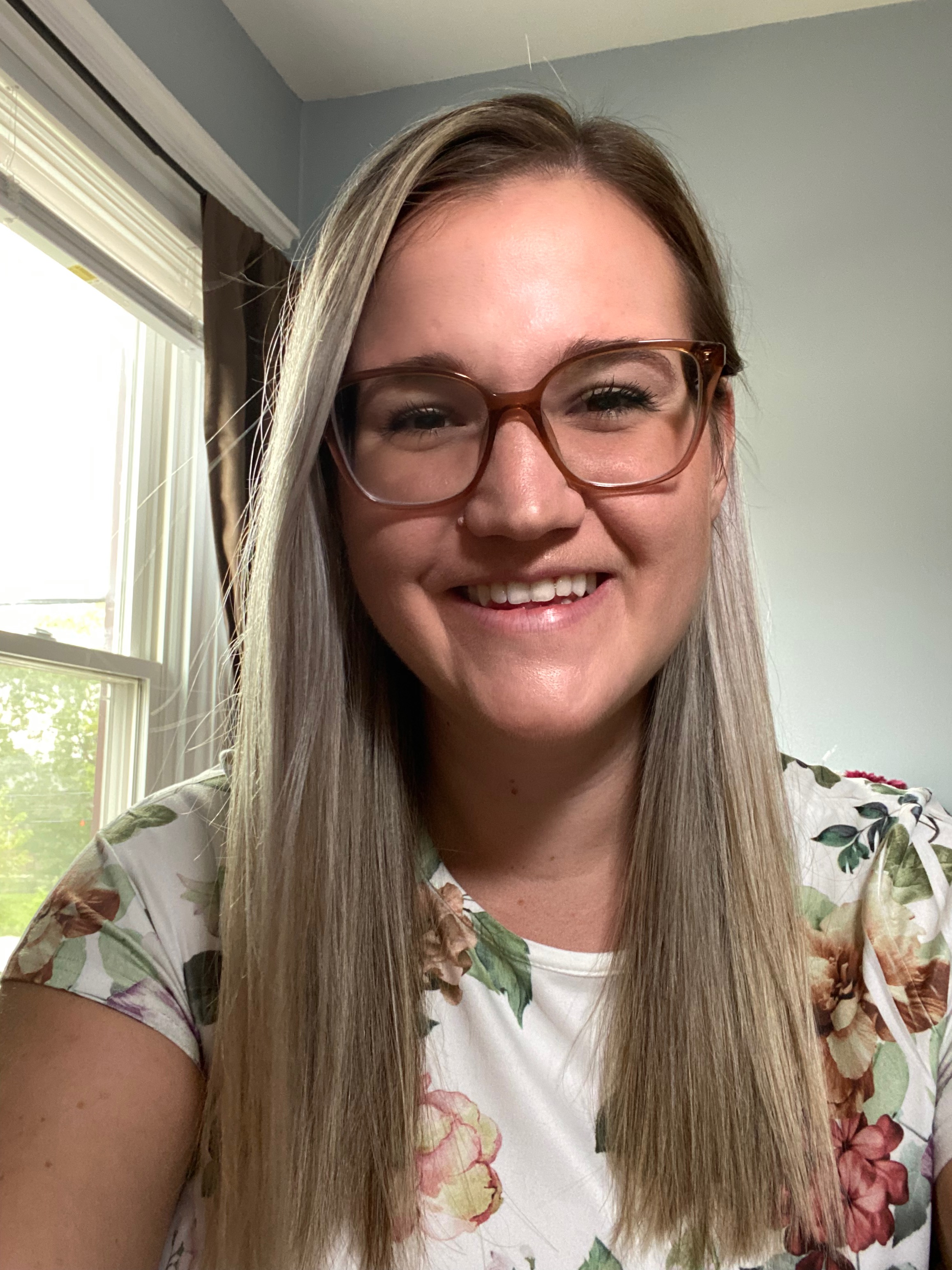
Her master’s thesis was on women’s experiences of sexual objectification and their attitudes towards different types of sex work. Her research interests include women’s experiences of sexualization and objectification and how they influence their experiences of sexual empowerment and sexual safety within different types of sexual relationships.
Storm is currently a research assistant and student coordinator for the Heath and Research Centre for the Study of Violence Against Women.
Email: balints@uwindsor.ca
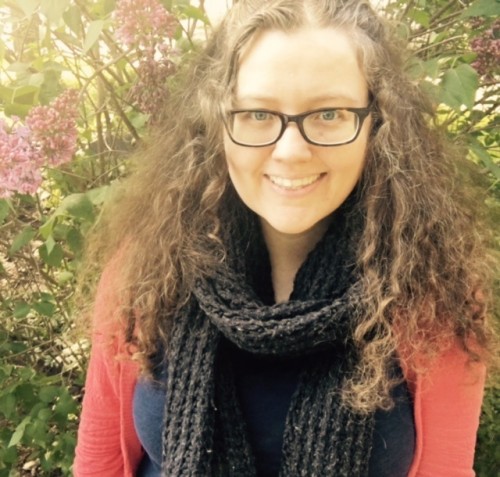
Dr. Betty Jo Barrett is a Professor of Women’s and Gender Studies and Social Work at the University of Windsor. She is the Co-Director of the Health Research Centre for the Study of Violence Against Women and a founding member of the Animal and Interpersonal Abuse Research Group. Prior to her position at the University of Windsor, she was a community social worker in the areas of child welfare and family violence, specializing in work with child and adolescent survivors of childhood sexual abuse. Her research interrogates gender-based violence, with a specific focus on intimate partner violence in heterosexual and 2SLGBTQ+ relationships and survivors’ interactions with formal and informal sources of support. Her recent scholarship examines the nexus of violence against humans and non-human animals in the context of intimate partner violence. She is also an instructor in the Walls to Bridges Program, which brings together university students with incarcerated students for co-learning and community building as peers in university credit courses taught inside carceral spaces.
Select Violence Related Recent Publications (last three years)
- Fitzgerald, A., Barrett, B.J., Gray, A., & Cheung, C. (in press). The co-occurrence of animal abuse and intimate partner violence among a nationally representative sample: Evidence of “the link” in the general population. Violence and Victims.
- Barrett, B.J., Peirone, A., Cheung, C., & Habibov, N. (2021). Pathways to police contact for spousal violence survivors: The role of individual and neighborhood factors in survivors’ reporting behaviors. Journal of Interpersonal Violence, 36(1-2), 632-662. doi.org/10.1177/0886260517729400
- Barrett, B.J., Fitzgerald, A., Stevenson, R. & Cheung, C. (2020). Animal abuse as a risk marker of more frequent and severe forms of intimate partner violence. Journal of Interpersonal Violence,35(23-34), 5131-5156. doi.org/10.1177/0886260517719542
- Fitzgerald, A., Barrett, B.J., Gray, A., & Cheung, C. (2020). The connection between animal abuse, emotional abuse, and financial abuse in intimate relationships: Evidence from a nationally representative sample of the general public. Journal of Interpersonal Violence. https://doi.org/10.1177/0886260520939197 [Advanced on-line publication]
- Barrett, B.J., Peirone, A. & Cheung, C. (2020). Help seeking experiences of survivors of intimate partner violence in Canada: The role of gender, violence severity, and social belonging. Journal of Family Violence, 35(1), 15-28. https://doi.org/10.1007/s10896-019-00086-8
- Gray, A., Barrett, B.J., Fitzgerald, A., & Peirone, A. (2019). Fleeing with Fido: An analysis of what Canadian domestic violence shelters are communicating via their websites about leaving an abusive relationship when pets are involved. Journal of Family Violence, 34(4), 287-298. https://doi.org/10.1007/s10896-018-0023-z
- Barrett, B.J., Peirone, A., & Cheung, C. (2019). Spousal violence and evaluations of police performance in Canada: Does police contact matter? Journal of Family Violence, 34(3), 199-211. https://doi.org/10.1007/s10896-018-0017-x
- Fitzgerald, A., Barrett, B.J., Stevenson, R., & Cheung, C. (2019). Animal maltreatment in the context of intimate partner violence: A manifestation of power and control? Violence against Women,25(15), 1806-1828. https://doi.org/10.1177/1077801218824993
- Barrett, B.J., Fitzgerald, A., Peirone, A., & Cheung, C. (2018). Help-seeking among abused women with pets: Evidence from a Canadian sample. Violence and Victims, 33(4), 604-626. doi: 10.1891/0886-6708.VV-D-17-00072
- Stevenson, R., Fitzgerald, A., & Barrett, B.J. (2018). Keeping pets safe in the context of intimate partner violence: Insights from domestic violence shelter staff in Canada. Affilia: Journal of Women and Social Work, 33(2), 236-252. https://doi.org/10.1177/0886109917747613
Select Violence Related Recent SSHRC Grants (last three years)
- 2019, Social Sciences and Humanities Research Council, Insight Grant Program. Where Vulnerability and Victimization Intersect but Escape Routes Do Not: The Co-Occurrence of Animal Abuse and Intimate Partner Violence in Canada. PI: Fitzgerald, A.; Co-PI: Barrett, B.J., Fritz, P., & McPhee, D.; Collaborator: Stevenson, R.; $194,438
- 2019, Social Sciences and Humanities Research Council, Partnership Engage Program. Facilitating Safe Housing for Women and Pets Fleeing Abusive Relationships. PI: Barrett, B.J.; Co-PI: Fritz, P. Fitzgerald, A., & Stevenson, R.; $24,956 (project total with matching funds $42,257).
- 2019, Social Sciences and Humanities Research Council, Connection Grant Program. Bringing Together Sexual Assault and Intimate Partner Violence Sectors: Implications for Research, Policy, and Practice. PI: Fritz, P.; Co-PI Barrett, B.J., Collier, C., & Senn, C.; $24,627 (project total with matching funds $45,507)
- 2018, Social Sciences and Humanities Research Council, Connection Grant Program. Animals and Us: Research, Policy, and Practice. PI: Barrett, B.J.; Co-PI: Fitzgerald, A., & Fritz, P.; $24,941 (project total with matching funds $46,535)
Email: bbarrett@uwindsor.ca
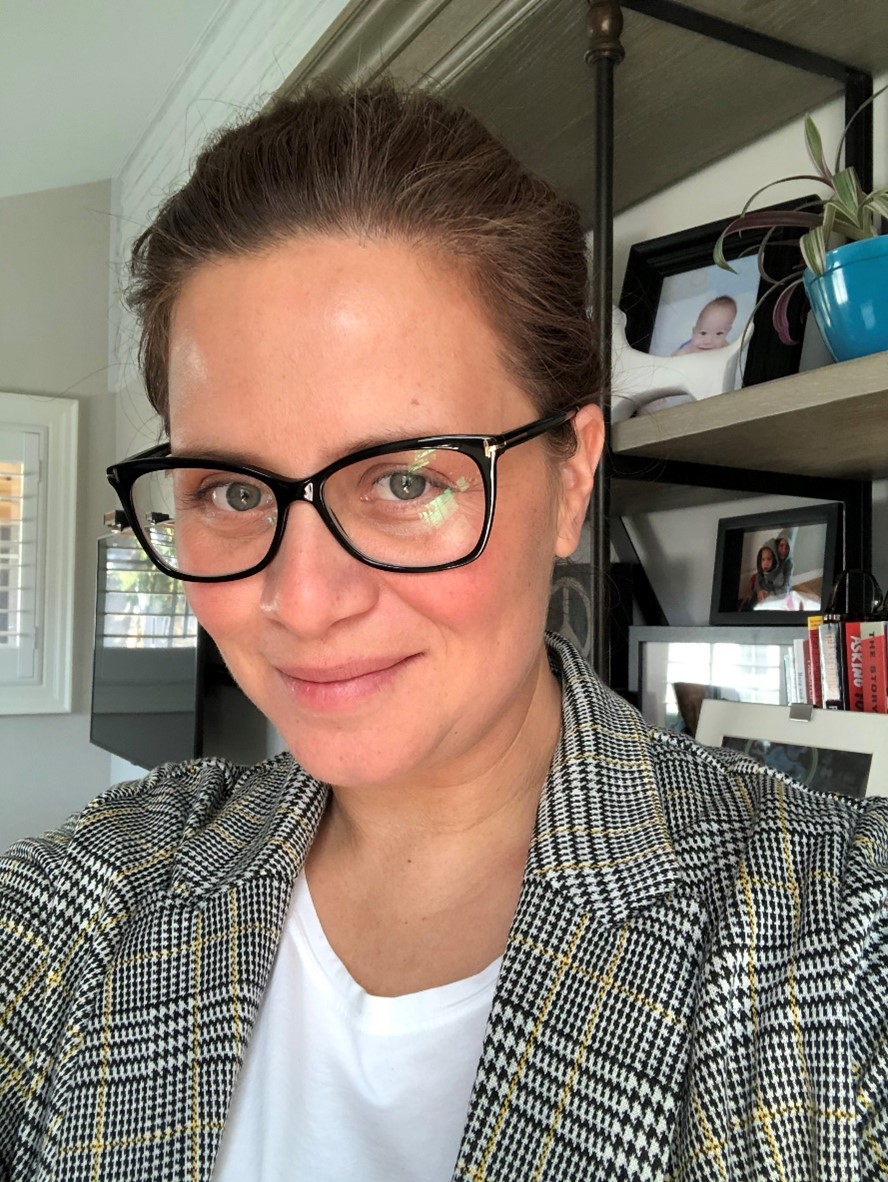 Dr. Frances (Frankie) Cachon iis a Learning Specialist in Women’s and Gender Studies.
Dr. Frances (Frankie) Cachon iis a Learning Specialist in Women’s and Gender Studies.
She is the Coordinator of the University of Windsor’s Bystander Initiative, a campus-wide sexual violence prevention program. Frankie holds a PhD in Sociology with a specialization in Social Justice. Her research interests include the bystander approach as a means of engaging post-secondary communities in the prevention of sexual violence, feminist pedagogies, and youth-led social change.
Email: mfcachon@uwindsor.ca
Dr. Sara Crann is a post-doctoral fellow working on a research project with Dr. Charlene Senn focusing on sexual assault resistance education. Learn more about Sara's current research at: charlenesenn.ca/saracrann
Email: scrann@uwindsor.ca
Samantha Daskaluk is a graduate student in the Department of Psychology.
Email: daskalu@uwindsor.ca
Gena Dufour received her master’s degree in Applied Psychology with a forensic specialization from Saint Mary’s University in Halifax, Nova Scotia. Her thesis was on victim impact statements in the Canadian justice system.
She is currently a PhD student in Applied Social Psychology at the University of Windsor. Her current research examines experiences with victimization. She is most interested in gender-based and sexual violence, including risk, prevention, healing, and recovery. She is also interested in the ways in which research can inform and improve the processes and policies which directly impact victims. Gena is also interested in harm-reduction and trauma-informed models of response.
Email: dufour61@uwindsor.ca
 Dr. Amy J. Fitzgerald is an Assistant Professor in the Criminology Program of the Department of Sociology and Anthropology at the University of Windsor.
Dr. Amy J. Fitzgerald is an Assistant Professor in the Criminology Program of the Department of Sociology and Anthropology at the University of Windsor.
She has taught in the areas of gender, family, administration of criminal justice, corporate and governmental crime, and victimology. Her areas of interest include gender studies, criminology, environmental sociology, and the sociology of non-human animals (also referred to as animal studies). She has conducted research on the relationship between animal abuse and family violence; the interconnectedness of women, animals, and weapons in the sport hunting discourse; the use of various feminist perspectives to examine the increasing participation of women in sport hunting; and the effects of slaughterhouses on community crime rates, particularly on sexual assault rates.
Her work has been published in academic journals such as Women’s Studies Quarterly, Society and Animals, Visual Studies, and the Annual Review of Environment and Natural Resources.
She is the author of Animal Abuse and Family Violence: Researching the Interrelationships of Abusive Power (Mellen, 2005) and co-editor of The Animals Reader: The Essential Classic and Contemporary Writings (Berg, 2007).
Email: afitz@uwindsor.ca
Brandin Glos is a graduate student in the Department of Psychology.
Email: glosb@uwindsor.ca
Lindsey Jaber is an assistant professor of Educational Psychology in the Faculty of Education. Dr. Jaber is also a registered Psychologist in the areas of School, Clinical, and Counselling Psychology with the College of Psychologists of Ontario. Dr. Jaber has extensive experience in the assessment and treatment of children, adolescents and adults and is actively engaged in research regarding mental health and intervention. Her professional and scholarly experience working in schools, community settings, and private practice has informed her research. Dr. Jaber has numerous publications, including research articles and book chapters on topics ranging from childhood/adolescent development to violence, aggression, bullying, trauma, and suicide. She has presented at many national and international conferences and facilitated multiple training workshops for professionals.
Email: ljaber@uwindsor.ca
Beverly Jacobs is a faculty member in the Faculty of Law.
Email: bkjacobs@uwindsor.ca
Nicole Jeffrey is currently a Research Associate and Postdoctoral Fellow in the Psychology Department at the University of Windsor, working with Dr. Charlene Senn on various projects. Dr. Jeffrey uses mixed-methods and social-psychological and feminist theories to study men’s sexual violence against women. She is particularly interested in the social norms related to gender, masculinity, and heterosexuality that work to justify, minimize, and otherwise perpetuate sexual violence. More information about Dr. Jeffrey’s work and recent publications can be found at https://nicolejeffrey.com/
Email: njeffrey@uwindsor.ca
 Dr. Dusty Johnstone is the Sexual Misconduct Response and Prevention Officer at the University of Windsor.
Dr. Dusty Johnstone is the Sexual Misconduct Response and Prevention Officer at the University of Windsor.
She currently provides advocacy and support for members of the University community who have experienced sexual violence and coordinates education on sexual violence response for the campus community.
Dusty is a graduate of the Applied Social Psychology program at the University of Windsor. Her doctoral research focused on qualitatively investigating unacknowledged rape and the processes by which women come to know, understand, and make meaning of their experiences of sexual violence.
Dusty has been actively involved in sexual assault prevention education at the University of Windsor, and for five years coordinated the implementation of the Bystander Initiative to End Sexual Assault.
Email: dustyj@uwindsor.ca
 Hio Tong Kuan is a graduate student in the Department of Psychology.
Hio Tong Kuan is a graduate student in the Department of Psychology.
Her current research focuses on the process and impact of mainstream online pornography use by individuals within couples on women’s experience of empowerment, coercion, and compliance.
Email: kuanh@uwindsor.ca
Shelby Lacey is a graduate student in the Faculty of Nursing.
Email: lacey112@uwindsor.ca
Dr. Dana Levin is an associate professor in the School of Social Work.
Email: danalev@uwindsor.ca
Naomi Levitz is a graduate student in the School of Social Work.
Email: levitz@uwindsor.ca
Heather Macarthur is a Research Associate in the Psychology Department at the University of Windsor.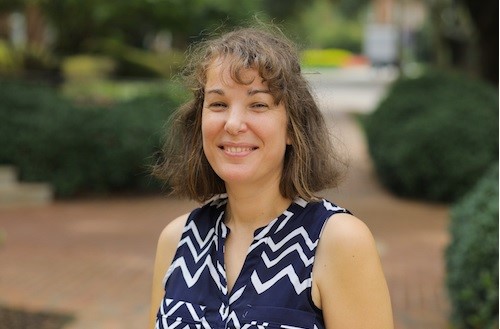
She came to Windsor after completing her PhD in Social Psychology and Women’s, Gender, and Sexuality Studies at Penn State University, and teaching at two liberal arts colleges in the U.S (Hamilton College; Furman University). At the University of Windsor, Heather is overseeing a project (led by Drs. Sara Crann and Charlene Senn) to evaluate a sexual assault resistance education program, recently adapted for teen girls from Dr. Senn’s Flip the Script with EAAATM program for university women. Heather’s own research focuses on the prevalence and consequences of subtle gender biases in everyday life, including the use of gender-biased language in daily speech, and the application of emotion-related gender stereotypes when observing the emotional expressions of others.
Email: hmacarth@uwindsor.ca
Janet Macisaac is a graduate student in the Department of Psychology.
Email: macisaan@uwindsor.ca
 Dr. Rosanne Menna is a professor in the Department of Psychology.
Dr. Rosanne Menna is a professor in the Department of Psychology.
In the most general sense her research centres on the development of competence and coping in children and adolescents. Her work has utilized a developmental psychopathology perspective.
The end goal of this research is to provide a theoretical and practical framework that can be applied to the design of intervention programs for children and adolescents who may be at risk for adjustment problems.
Her current research examines:
- parenting and parent-child relations as predictors of preschool aggression and prosocial behaviour
- adolescent help-seeking for mental health problems
- the development and evaluation of a program designed to encourage help-seeking behaviour and
- identity development in immigrant youth.
Email: rmenna@uwindsor.ca
Frasia Morrison is currently enrolled as a graduate student in the University of Windsor’s Child Clinical Psychology program. 
In general, her research interests include sexual assault and coercion, child sexual abuse and how these experiences may intersect with the development of post-traumatic stress disorder and substance use disorders.
Currently, her work investigates survivor’s perceptions of their own sexually assaultive and/or coercive experiences, and how these perceptions may be affected by various victim-perpetrator relationship characteristics.
Email: morri12t@uwindsor.ca
Lenox Mou is a graduate student in the Department of Psychology.
Email: mou2@uwindsor.ca
Kendra Nespoli is a graduate student in the Department of Psychology.
Email: nespoli@uwindsor.ca
Marni Oldershaw is a graduate student in the Department of Psychology.
Email: oldershm@uwindsor.ca
Dr. Francisca Isi Omorodion is an assistant professor of sociology with the Department of Sociology and Anthropology, at the University of Windsor, where she teaches courses on family, gender and sexuality.
Her research and teaching interests include Black families, violence against women and children, reproductive health of women and adolescents including HIV/AIDS, STDs; and sexuality.
She is a reviewer of a number of journal articles, books, and conference abstracts, including Social Science and Medicine, The Benin Social Sciences, and 2006 International AIDS Conference. She also conducts research and consults as a Medical sociologist/anthropologist with a number of International and National NGOs including World Health Organization, World Bank, and British Council, Nigeria. She received a Chevning Fellowship in 1995/96 for a Master’s in Applied Population Research. She undertakes collaborative and interdisciplinary research.
Dr. Omorodion recently obtained funding from Health Research Group on Violence against Women, University of Windsor to conduct a study on “African Immigrant Women’s Perceptions and Experiences of Intimate Partner Violence in Canada.” Her on-going research interest includes: Violence in Ontario, HIV/AIDS and Blacks in Windsor-Essex Area, African Immigrant Families, trafficking and Female genital mutilation.
Email: omorodif@uwindsor.ca
Amy Peirone recently completed her Ph.D. in Sociology with a Specialization in Social Justice and is currently working as a postdoctoral researcher. 
In a broad sense, her research expertise is in research methodology and the study of various forms of violence. By running Latent Class Analysis (LCA) and using data from the Canadian General Social Survey (GSS), her current research explores the distinct types of IPV experienced by both males and females in Canada and the multi-level factors related to these distinct experiences.
Amy has been involved in several different research projects, including those exploring perceptions of police among minority youth and survivors of IPV, reporting and disclosure practices among survivors of IPV, help-seeking behaviours among survivors of IPV who have pets, police response to cases of IPV, the geography of justice in Canada, and elder sexual assault.
Working alongside Dr. Betty Barrett, Amy is currently a Co-Director for the Health Research Centre for the Study of Violence Against Women. In addition to these roles, Amy is an Instructor at St. Clair College, where she teaches Criminology as well as Law, Power, and Social Justice. She is also the Coordinator for the Violence Against Women Coordinating Committee Windsor-Essex and is a long-standing member of the Board of Directors at St. Leonard’s House Windsor, a halfway house for federal offenders.
Email: peirone@uwindsor.ca
Dayanga Randeniya is a graduate student of the Applied Social Psychology program.
As a Sri Lankan-Canadian her identity influences her research interests in gender-based violence within the South Asian context and intersectional feminism.
Her MA thesis focuses on the influence of sexual socialization, gender roles and patriarchal norms in rape myth acceptance among South Asian students in Canada
Email: randeni@uwindsor.ca
Anna Sallah is a graduate student in the Faculty of Law.
Email: sallaha@uwindsor.ca
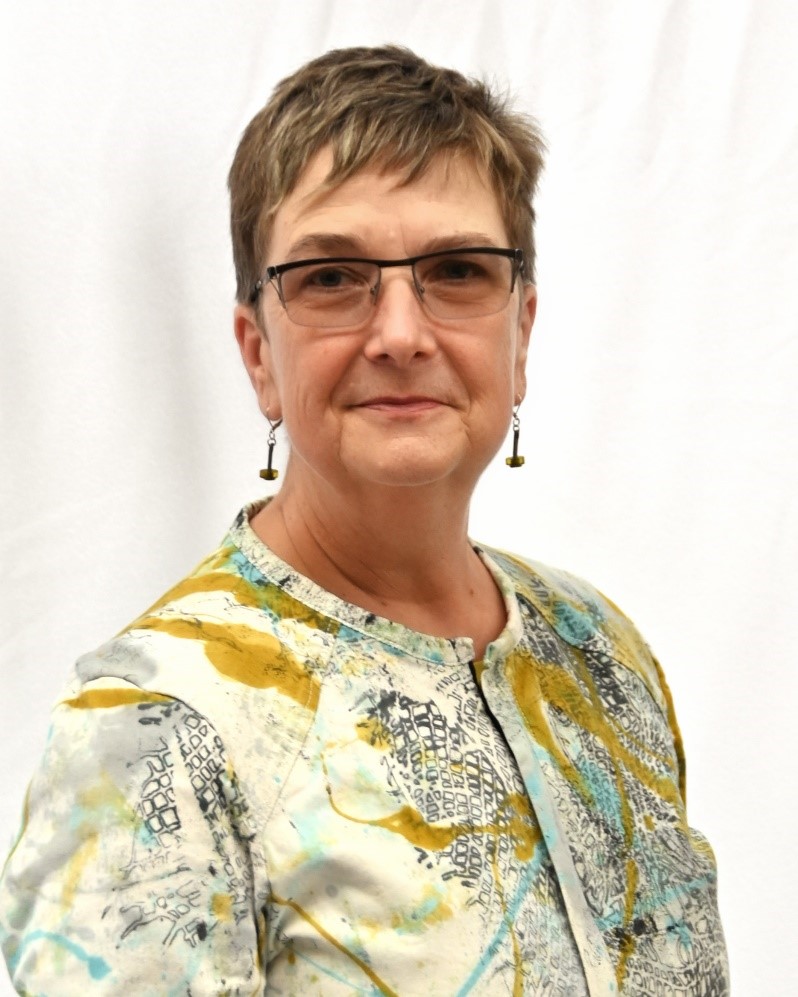
Dr. Charlene Y. Senn has been at the University of Windsor since 1992. She is a Distinguished University Professor affiliated with the Applied Social Psychology graduate program in the Department of Psychology. She held a Tier 1 CIHR Canada Research Chair in Sexual Violence from 2017-2024.
Her research on violence against women began with her graduate research on the effects of pornography on women and the impact of pornography on women’s lives. Since that time, she has developed a Fear of (Stranger) Rape questionnaire and investigated a range of topics related to violence against women and girls including identifying predictors of men’s sexual coercive behaviour, methodological issues in studying violence, sexual exploitation of youth involved in the sex industry, amongst others.
Since 2005, her research has focused on effective campus sexual violence interventions, particularly those developing women’s capacity to resist sexual assault. She developed the feminist Flip the Script with EAAA® program which substantially reduces (50%) the sexual violence women students experience for at least two years. The program simultaneously empowers women increasing their confidence and reducing their self-blame if they are sexually assaulted. This research contextualizes the realities of men’s violence against women within a positive sexuality framework and a focus on women’s strength, including survivors’ ability to survive, thrive and develop healthy sexual lives despite these experiences. A number of adaptation studies are underway including for younger girls, francophone and trans students, and for online delivery.
A selection of the published articles related to this program:
- Senn et al. (2015). http://www.nejm.org/doi/full/10.1056/NEJMsa1411131
- Senn et al. (2017). http://journals.sagepub.com/doi/abs/10.1177/0361684317690119
- Senn et al. (2020). https://journals.sagepub.com/doi/full/10.1177/0361684320962561
- Senn et al. (2023). https://www.tandfonline.com/doi/full/10.1080/20008066.2023.2290859
With her colleagues on the Bystander Initiative team, she worked between 2010 and 2022 on another critical piece of the sexual violence intervention puzzle to institutionalize effective bystander education and to study its short and longer-term impact on campus culture.
Some published articles related to the bystander program and comprehensive sexual assault education:
- Senn & Forrest (2016). https://psycnet.apa.org/record/2015-39025-001
- Bonar et al. (2020). https://www.tandfonline.com/eprint/Q5QNUKYFZYD6F4EFQ6JP/full?target=10.1080/07448481.2020.1757681
- Orchowski et al. (2020). https://journals.sagepub.com/doi/full/10.1177/1524838018789153
For more information on projects underway or for a complete list of publications, see my webpage charlenesenn.ca.
Email: csenn@uwindsor.ca
Gabriela Sheinin is a Ph.D. Candidate in the Child Track of the Clinical Psychology program at the University of Windsor.
She is also currently a Psychology Resident at the Waterloo Region Psychology Consortium. Her research focuses on intimate partner violence, coercive control, and emotional manipulation.
Email: sheinin@uwindsor.ca
Mia Sisic is a graduate student in the Department of Psychology.
She recently completed data collection for an international qualitative research project about women's experiences in a post-war country. The research was supported by the Health Research Centre for the Study of Violence Against Women.
Email: sisic1@uwindsor.ca
 Dr. Kendall Soucie earned her B.A. at the University of Windsor, her M.A. at Wilfrid Laurier University, and her Ph.D. in Developmental Psychology from Wayne State University. She recently joined the University of Windsor as a tenure-track faculty member in the Child Clinical area in 2019. Her most recent research interests are in understanding the social, cultural, and institutional determinants of women’s health equity, and chronic illness diagnosis and management (e.g., diagnosis experiences, misdiagnoses/errors, illness disclosure, patient-practitioner communications, and obesity stigma). Her second area of interest is in understanding the role of generativity in fostering community engagement and environmental justice motivations during the transition to adulthood. Dr. Soucie is also a strong proponent of mixed-method research designs and integrates qualitative and quantitative methodologies to better understand these domains of study.
Dr. Kendall Soucie earned her B.A. at the University of Windsor, her M.A. at Wilfrid Laurier University, and her Ph.D. in Developmental Psychology from Wayne State University. She recently joined the University of Windsor as a tenure-track faculty member in the Child Clinical area in 2019. Her most recent research interests are in understanding the social, cultural, and institutional determinants of women’s health equity, and chronic illness diagnosis and management (e.g., diagnosis experiences, misdiagnoses/errors, illness disclosure, patient-practitioner communications, and obesity stigma). Her second area of interest is in understanding the role of generativity in fostering community engagement and environmental justice motivations during the transition to adulthood. Dr. Soucie is also a strong proponent of mixed-method research designs and integrates qualitative and quantitative methodologies to better understand these domains of study.
Selected Publications:
Soucie, K, Samardzic, T., Schramer, K, Ly, C., & Katzman, R. (2021). The diagnostic experiences of Women with polycystic ovary syndrome in Ontario, Canada. Qualitative Health Research, 31(3) 523-534 https://doi.org/10.1177/1049732320971235
Soucie, K, Samardzic, T., Schramer, K., Salam, Z., & Ly, C (2021). Body and symptoms related concerns in women diagnosed with polycystic ovarian syndrome: A gap in symptom management. Journal of Health Psychology, 26(5), 701-712, https://doi:10.1177/1359105319840696
Samardzic, T., & Soucie, K., Schramer, K., & Katzman, R. (2021). “I didn’t feel normal”: Young, Canadian women’s experiences with polycystic ovary syndrome. Feminism & Psychology. Vol. ahead-of-print No. ahead-of-print. https://doi.org/10.1177/09593535211030748
Jia, F., Soucie, K., Matsuba, K., & Pratt, M. (2021). Meaning in life mediates the association between environmental engagement and loneliness. Int. J. Environ. Res. Public Health 18(6), 2897-2909. https://doi.org/10.3390/ijerph18062897
Email: ksoucie@uwindsor.ca
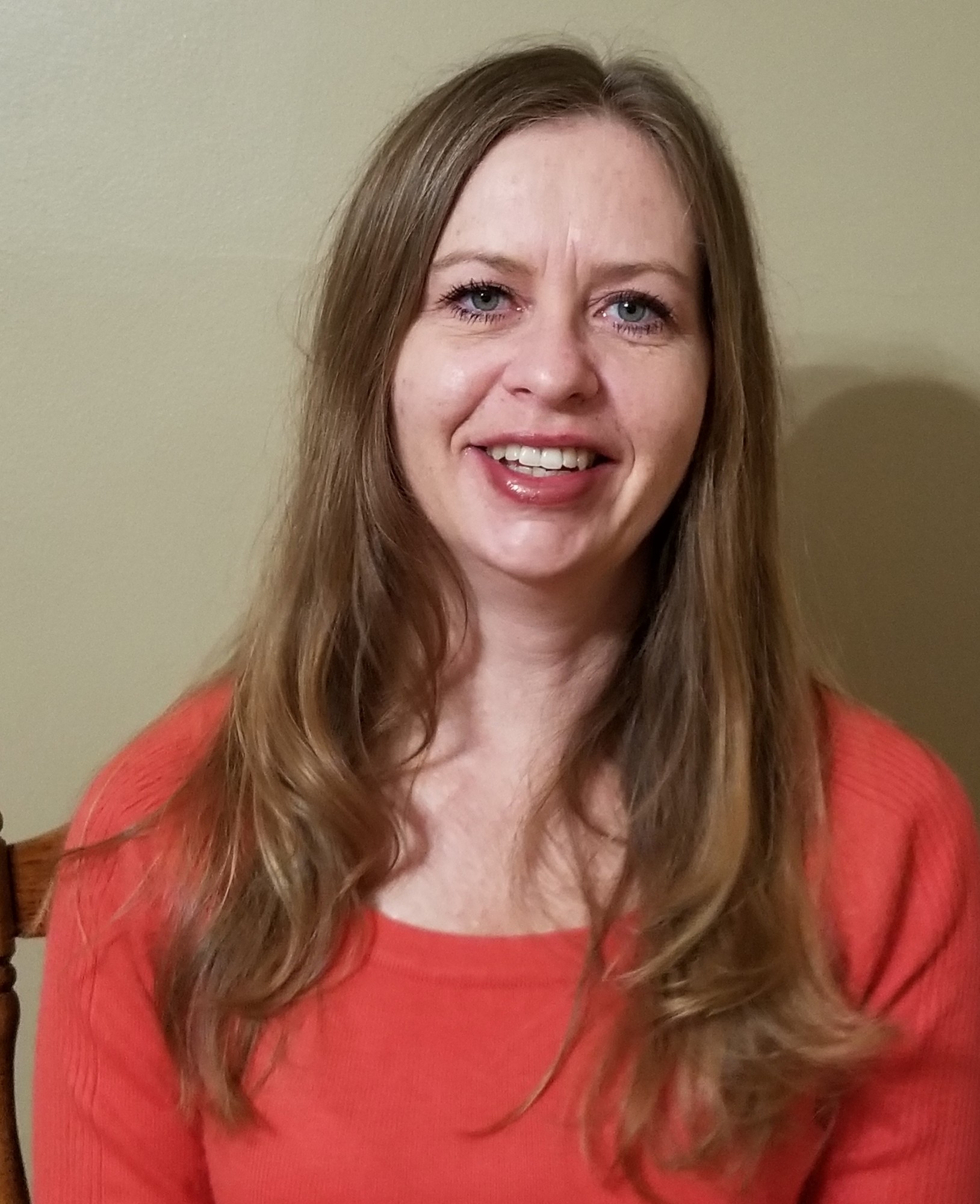 Dr. Patti A. Timmons Fritz is an Associate Professor in the Child Clinical Psychology Department at the University of Windsor.
Dr. Patti A. Timmons Fritz is an Associate Professor in the Child Clinical Psychology Department at the University of Windsor.
Broadly speaking, her research interests include the etiology, developmental course, and prevention and treatment of intimate partner aggression.
More specifically, she is interested in the process by which individuals first come to use coercive and/or aggressive tactics against romantic partners and in the longitudinal course of intimate partner aggression across both time and partners. Ultimate goals of her program of research include developing prevention and treatment protocols that will allow individuals (with a particular focus on youth) to build and maintain healthy, violence-free relationships.
Email: pfritz@uwindsor.ca
 Kathleen Wilson is currently enrolled in the University of Windsor's Child Clinical Psychology program.
Kathleen Wilson is currently enrolled in the University of Windsor's Child Clinical Psychology program.
In general, her research examines the role of coercive control in intimate partner violence.
More specifically, she is interested in researching how coercive control relates to intimate partner violence in emerging adulthood, including how the cycle of coercion changes throughout dating relationships and how coercion and intimate partner violence relates to the development of post-traumatic stress disorder and depression.
Email: wilso12y@uwindsor.ca
Catherine Vanner is an Assistant Professor of Educational Foundations in the Faculty of Education at the University of Windsor.
She uses qualitative and participatory research to examine the relationship between gender, violence, and education in North American and Sub-Saharan African contexts. She previously worked as a Postdoctoral Fellow at McGill University, as an Education Advisor for Plan International Canada and the Canadian International Development Agency (now Global Affairs Canada), and as a Consultant for UNESCO. She completed a Ph.D. in the Faculty of Education at the University of Ottawa and a M.A. in International Affairs from Carleton University. She has recently published in peer-reviewed journals including Gender and Education, Comparative Education Review, and Girlhood Studies, and lives in Windsor, Ontario with her partner and their two children.
Email: cvanner@uwindsor.ca
